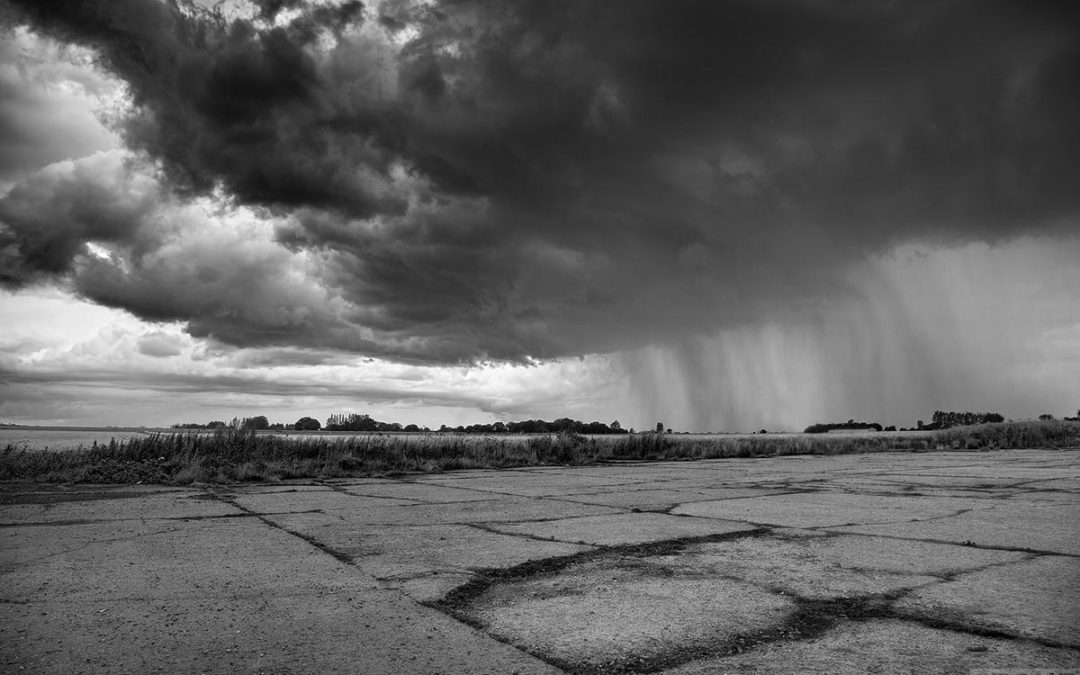Julie’s boat is in the field behind my house by Judith Willson
A gale’s punched the sheets on the line all day, now they’re fighting out of my arms
to get back to the brawl and there’s Julie’s boat on the crest of the field
goose-winging into the slap of rain, prow sheering high
over a hawthorn reef.
In fog it’s the Flying Dutchman ghosting its searoads down to the Cape.
Hikers walk at an off-kilter list to their dry-land bearings for the rest of the day;
passengers on the late bus rounding the corner are lost in a trance
of signal lights flashing unanswered.
And on winter evenings it’s Endurance hung with frost-smoke,
circling inexorably in the Weddell Sea. The crew count out matches,
stare at lights in windows ten thousand miles north.
Hussey plays the banjo.
But today, in the clear light of rain, Julie’s boat is in the field behind my house
like the word boat in Basque, singular in an ocean of words for boats,
lapped by a swell of grass calling its sea-name
txalupa, txalupa, txalupa.
This is such a rich poem – only sixteen lines but look where it takes you. Maybe I should qualify that and say look where it takes me. What the reader brings to the poem is a significant factor. Anyway I’m right in there at the start with the linen line. I firmly believe that the sexual revolution in part 2 of the twentieth century began on the rainy day when my mother came home from work, saw the sheets drooped and dripping, turned to my father and me and said ‘why didn’t you bring the sheets in?’ Judith’s evocation is deliciously exact, but then we’re met with Julie and her boat. Who Julie is and what her relationship with the narrator is is the centre of the poem. Questions unasked and questions unanswered are so powerful. In passing please note ‘goose-winging’, used of a boat sailing before the wind with mainsail out one side and jib the other but which reminds me of the evocative ‘nursery’ rhyme, ‘Grey Goose and Gander’. And then there’s the abrupt earthing effect of ‘hawthorn reef’. I’m there, this is familiar, but if you haven’t wintered in littoral communities you might not recollect the sight of boats, taken out of the water for their own sake and stored wherever their owners can find space for them.
Then we have two stanzas with two mythological, or near mythological, boats. Again it might be what I bring to the poem: my teenage joy at being in such places as Romney Marsh, or the Scilly Isles, and mixed with that the recollection of Noah’s Ark, beached on a mountain top, or the fact that the Trojan War couldn’t take place until the wind had been changed for Agamemnon’s fleet, or Odysseus’ snail-paced homecoming, or the coracles of the Irish saints – all those boats. Judith’s poem evokes, for me, Wagner’s treatment of the Flying Dutchman legend: I have a hair-raising memory of being alone in the house as a child and listening to his music: then she cuts to the field and the walkers going on at a slant, the bus passengers entranced, until, in line 8, she throws at us the magic of, ‘signal lights flashing unanswered’. Mystery piled upon mystery. Stanza three takes us to Shackleton’s mis-adventure (easy to mistake the name Hussey for that of Hurley, the photographer whose, as they say today, ‘iconic’ images capture the end of the ship), and then the open boat journey to Elephant Island and Shackleton’s extraordinary rescue voyage to South Georgia (and the vision he has, crossing the mountains, of being accompanied by ‘another figure’).
In the last stanza we are back in the field, with Julie’s boat (and it’s great that this boat belongs to a woman after all the masculine stuff, and the rather sickening (look it up) ending of Dutchman). And then, with a kind of nonchalant cool, the poem throws us into a completely other field, the Basque language, a culture on the edge, a lovely looking word, ‘txalupa’, at whose pronunciation we can only guess. More mystery – as Google says ‘l’origine de cette barque est assez obscure’.
Michael Mackmin
Image: Storm over Deopham Green, Norfolk. © Nick Stone/Invisible works, used with permission.






